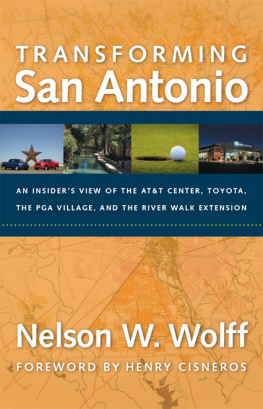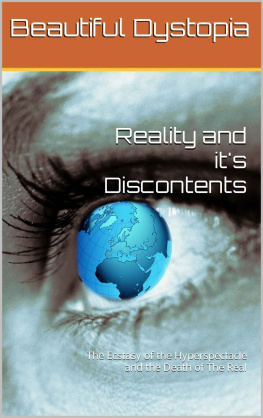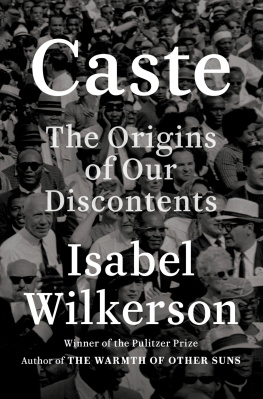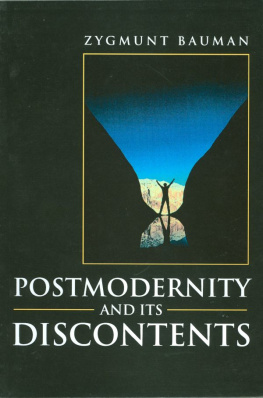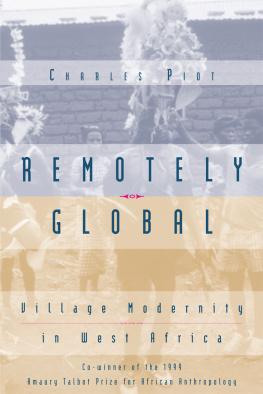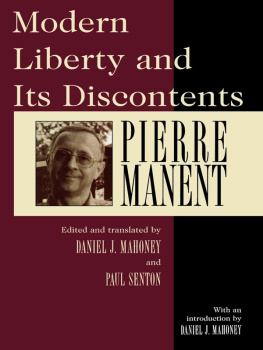


Published by
World Scientific Publishing Co. Pte. Ltd.
5 Toh Tuck Link, Singapore 596224
USA office: 27 Warren Street, Suite 401-402, Hackensack, NJ 07601
UK office: 57 Shelton Street, Covent Garden, London WC2H 9HE
Library of Congress Cataloging-in-Publication Data
Names: Rappa, Antonio L., editor. | Container of (work):
Rappa, Antonio L. Village structure and social organization.
Title: The village and its discontents : meaning and criticism in late modernity /
[edited by] Professor Antonio Leopold Rappa.
Description: New Jersey : World Scientific, [2016]
Identifiers: LCCN 2016015278 | ISBN 9789813140066 (hardcover)
Subjects: LCSH: Villages. | Community life. | Sociology, Rural.
Classification: LCC HT431 .V536 2016 | DDC 307.76/2--dc23
LC record available at https://lccn.loc.gov/2016015278
British Library Cataloguing-in-Publication Data
A catalogue record for this book is available from the British Library.
Copyright 2016 by World Scientific Publishing Co. Pte. Ltd.
All rights reserved. This book, or parts thereof, may not be reproduced in any form or by any means, electronic or mechanical, including photocopying, recording or any information storage and retrieval system now known or to be invented, without written permission from the publisher .
For photocopying of material in this volume, please pay a copying fee through the Copyright Clearance Center, Inc., 222 Rosewood Drive, Danvers, MA 01923, USA. In this case permission to photocopy is not required from the publisher.
Desk Editor: Karimah Samsudin
Printed in Singapore
This book is dedicated to my sons
George Anthony Cornelius Rappa and Quentin Cornelius Rappa
ABSTRACT
The Village and Its Discontents : Meaning and Criticism in Late Modernity is a hopeful collection of essays about villages in Asia, Africa, Latin America, and across the world. Villages constitute the basic unit of analyses in many academic disciplines including the arts, humanities, life sciences, and the social sciences. Indeed, village level studies have been conducted in archaeology, architecture, computer science, medicine, pharmacy, and pharmacology for decades. The intention of this book is threefold: (1) to regenerate interest in the concept and reality of the village; (2) to understand the meanings inherent in village life; and, (3) to gain greater theoretical insights into multidisciplinary knowledge and analyses surrounding the village. Population increases, urbanisation, gentrification, MNCs, environmental degradation, global warming, uneven economic development, and political change have led to the increasing disappearance of authentic villages around the globe. Villages learn to adapt but that adaptation comes at a price. Tourist villages are a common sight in countries that are dependent on tourist dollars eventually exist for money. The villagers take on roles and functions that they think will capture the imagination of tourists; there is cultural invention and reinvention for the sake of profit in the search for exoticism and originality. examines the literary critiques and narratives of several village themes captured in literary criticism where the real has become the reel; where the reel makes reality; but like Pirandellos play, these villages and their discontents characterise people in search of an author. The subsequent chapters examine the central theme of the village in late modernity. We conclude that the villages that we know today will eventually disappear unless something more, something extra, something worthwhile is done to address this problematic. The village is an idea, a construct, and a way of organising society. The global village that S. Rajaratnam envisioned in the early 1970s has not evolved in the way that he had anticipated. Village pathways are no more than a mishmash of optimistic twists and turns seeking survival in late modernity. The European village of free access and travel for locals and foreigners alike has brought with it a range of variegated discontents, prejudices, and biases. Perhaps one day Southeast Asia will become so safe and prosperous that one can walk from Singapore to Laos without molestation; perhaps one day a road will connect the villages in Southeast Asia to Africa and Europe in a seamless continuance, connecting the old with the new, the past with the present, and ethics with aesthetics.
PREFACE
Antonio Rappa
The idea for this book arose out of a contentious discussion at Oxford University in 2013 when the participants at our panel on Thai politics kept raising the idea of the village as the function of the city; a consequence of urban life, and a by-product of the nation state. The absence of knowledge about the chronological place and value of the village across historical space and time is perhaps understandable, even for reputed scholars at the best universities in the world. Nevertheless, it occurred to me that scholars and scholarship had long forgotten and neglected the value of the village as the central or basic unit of analyses in the social sciences as well as the medical and life sciences. Because of industrialisation and urbanisation, the place of the village has in many places been relegated to a place of less importance, lower significance and structures that had become emptied of meaning. This book cannot reverse this trend but perhaps it shore up some possibilities of value. I have tried to impress on the chapter writers of the need to focus on the discontent that villagers have for globalisation and change. However, this has not always been the case as the chapters will reveal. The chapters eventually emerged with different, unanticipated outcomes. Nevertheless, the general intention of this book is to assemble scholars from different disciplines to provide their own insights on a common theme.
When I approached Professor Tommy Koh (Ministry of Foreign Affairs) and Associate Professor Kirpal Singh (Singapore Management University) about this book, they were interested and supportive. In his usually modest self, Professor Koh wondered whether he was even the right person to write the Foreword. Kirpal and I managed to convince him to not only buy a lovely tropical lunch but to write an original Foreword based on his own experience and decades of work as a diplomat. What he wrote is quite different from what I had expected. Kirpal himself was unable to commit to a poem or a chapter (which would have been easier to write, of course) because of his heavy administrative duties at the Wee Kim Wee Centre at SMU. Nevertheless, he remains an avid supporter of this work and an inspiration for us all. None of the individual writers read the other chapters beforehand. All chapters (except for the Foreword) were sent for double-blind peer review in the authors own academic discipline. I had the burden of rejecting three coherent pieces and five lower-grade contributions because of the reviewers comments.
I have the honour to thank the contributors as well as those who did not make it. And to offer my sincere appreciation to Professor Tommy Koh for having made time to write his Foreword. I would also like to thank Managing Director of World Scientific Max Phua, and Professor Kok Khoo Phua, Chairman and Editor-in-Chief, World Scientific Publishing, the Founding Director of the Institute of Advanced Studies at Nanyang Technological University (NTU) and Adjunct Professor of Department of Physics at National University of Singapore (NUS). I also am very appreciative to my acquisition and commissioning editor, Ms Karimah Samsudin, as well as my friend and colleague Dr Lim Tai Wei, a Cornell-trained historian teaching at UniSIM College for their moral and intellectual support. This book would not have been possible without the support of my old friend and co-writer Professor Lionel Wee, the FASS Vice-Dean of Research at the National University of Singapore as well as Alvin and Widyono (private sector), Guan Chong, Ding Ding, Caitlin, Yinghui (all from SBIZ) and Beng Soon (SASS). My old student from NUS, Dr Priscilla Pang (SASS) kindly vetted an earlier draft and raised some critical pointers that added clarity and perspective. I am most appreciative of the SIM University Faculty Development Scheme (FDS) for having provided a small travel grant that allowed me to present that particular paper at Keble College, Oxford University, without which this Village book would not have been conceived.






